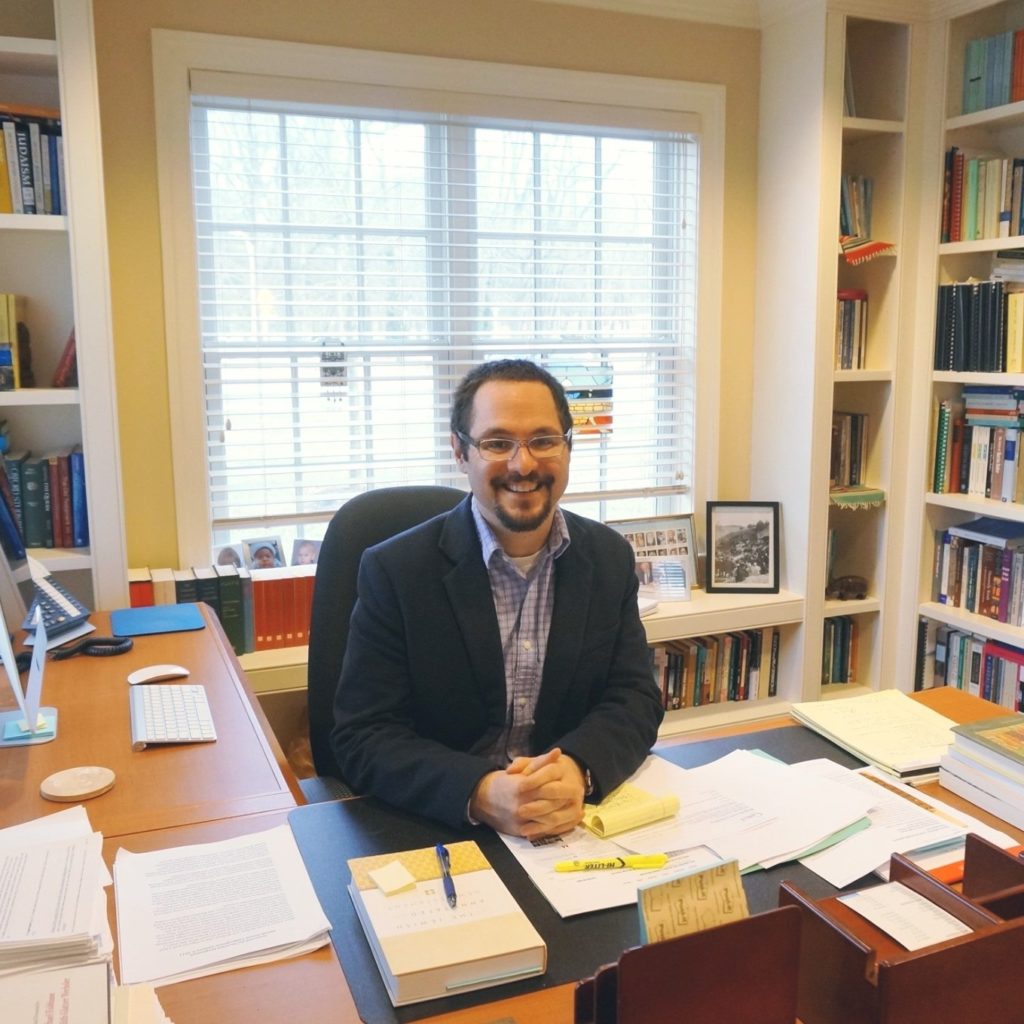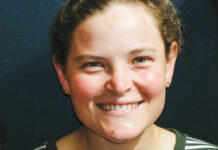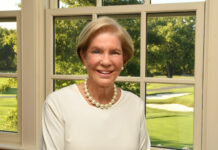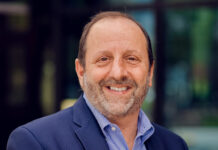
As the Jewish scholar at The Institute for Islamic, Christian, and Jewish Studies, Beth Am Synagogue member Ben Sax has made it his mission to find ways to channel religious difference as a positive force in the world.
Raised in Cherry Hill, N.J., Sax, along with his family, were members of the Conservative movement, and he recalled how his religious school would take his class to Crown Heights to see the Lubavitcher Rebbe. He grew up attending a public high school.
“Judaism was ever present,” he said. “It was never in doubt, but at the same time, it was enough of a diverse neighborhood and place that I didn’t just get lost in my own Jewish identity.”
Sax noted that some members of his family were Holocaust survivors, while others spent the war serving in the U.S. military.
After receiving a master’s degree in Jewish thought from The Hebrew University of Jerusalem, Sax began working toward his doctorate in the history of Judaism at the University of Chicago. There, he experienced a number of “interreligious encounters” with Christians and Muslims also studying at the school. He remembered them as fruitful conversations that helped him sharpen his own research skills.
Sax’s first job after graduating was teaching an intro to Judaism class at the Catholic-affiliated DePaul University. He had previously established connections with DePaul during a fellowship program at the University of Chicago. He found the school’s commitment to education inspiring and spent time being mentored by the priests there. “It broke down some boundaries for me and opened up whole new ways into thinking,” he said.
Afterward, Sax taught for six years at Virginia Tech in their Jewish studies program. Though he found it to be an incredible professional opportunity, “living in a small town in southwest Virginia, in Appalachia, isn’t the easiest thing when you’re Jewish,” he explained. “In Appalachia I really became a Jew, in the sense that people would not see me any other way and brought all of their prejudices and [discomforts] with that. … I never felt like a minority until I moved there.” At the same time, he felt that the experience enhanced his sense of empathy and his capacity to engage in conversation and dialogue.
Sax began his work at ICJS in 2014. He viewed it as “beshert” when the position became available. He defined the institute’s mission as building “learning communities where religious difference becomes a powerful force for good.” Of his contributions to that mission, his work has included efforts to transform the organization from The Institute for Christian and Jewish Studies, as it was once known, by bringing in an Islamic scholar. He also worked on the Imagining Justice in Baltimore program.
His day-to-day responsibilities include continued scholarship in the fields of Jewish thought and interreligious dialogue, administrative duties related to conferences, teaching adult education classes on subjects such as Jewish and Muslim views of Jesus and different leadership programs.
“We’re a relatively quiet building when we’re actually able to go to work,” Sax said, “but, at the same time, it always feels like we’re moving. There’s always something going on.”
Recently, Sax was asked by the U.S. State Department to participate in a Danish Zoom conference in December related to proposed legislation that would ban circumcision in Denmark, in order to provide attendees with an understanding of how this ban would be perceived in the Jewish world.
“The issue that I wanted to raise with them is that, whether or not they intend this in their arguments,” Sax said, “when you ban circumcision this is a tactic that went back all the way to ancient Rome as a way of demonizing Jews, to even philosophers like Immanuel Kant as a way of promulgating anti-Semitism and othering Jews.”
At the conference, Sax told the audience how for decades, in the Jewish imagination, the Danish have been viewed heroically for their efforts to save their Jewish community from the Third Reich. “By putting into law something that from my perspective … is grotesquely anti-Semitic,” Sax remembered telling the attendees, “you’re actually taking a story of hope away from us.”
Currently, Sax doesn’t believe Denmark will pass the ban, he said, though not because of his presentation.
While Sax acknowledges that a great deal of ignorance exists in the world, he is hopeful about the future of religious tolerance and cooperation. During the last several years, which saw incidents like bomb threats targeting the Jewish, Muslim and Black communities, he has gotten phone calls from different community members looking to make new interreligious connections.
“‘I’m really embarrassed to say this,’” Sax remembered a caller saying to him, “‘I’m a Muslim woman, and I really feel like I need a Jewish friend. Can you connect me with other Jewish women?’ And then a Jewish woman … contacted me and said ‘I really want to meet Muslim women. I don’t know why, I just feel this connection giving everything that’s going on.’”
“You saw that sort of solidarity in different ways, too,” Sax continued. “But I think as much as it’s kind of evaporating from the public conversation, I still think that it had a transformational effect on the people who experienced it. And so that really does give me confidence.”







If antisemitism is defined as opposition to traditional Judaism, then obviously, banning circumcision is antisemitic, as Dr. Sax claims. However, if you understand antisemitism as opposition to Jewish people (including such prominent opponents of circumcision as Herzl or Freud), then his claim looses ground. In any case, rejecting criticism by pointing out to antisemitism, instead of providing relevant counter arguments, looks like a logical fallacy, a sign of intellectual weakness. It is also morally wrong to address the tragic phenomenon of antisemitism in such an easy and superficial way, as is often done.